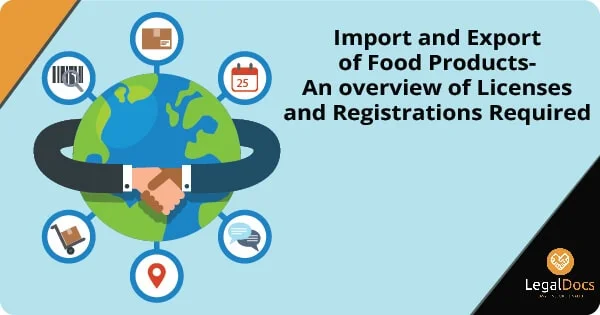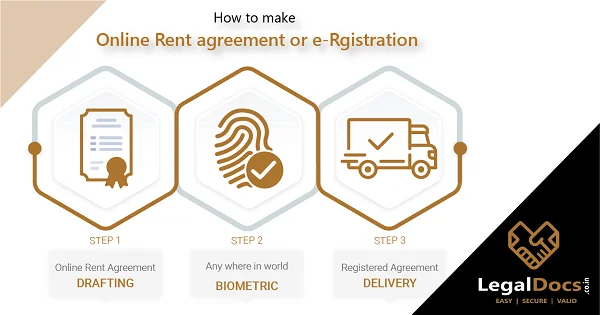Import and Export of Food Products
In recent past, there was a major growth in the export and import of goods and services in India. Witnessing such a change, many entrepreneurs and startups began to venture into the import and export business in India. Among them, there are many who have jumped into the import and export business without weighing the pros and cons of the same. The absence of right information may turn the business experience into a nightmare.
Recent economic changes have slowed the growth in India’s exports. This has prompted the government to promote the import and export business in India in value terms. The government is mulling ways to relook the export promotion schemes and make them complementary to the global trade norms. Similarly, the Food Safety and Standards Act, 2006 has helped to remove multiple regulations on import and export business of food products. It has promoted innovation in food products while maintaining a higher degree of consumer confidence in safety and quality of food.
Despite the steps taken by the Indian government to promote the import and export business, there is still a tiresome process to begin the business. One requires a number of licenses and registrations to start an import export business in India.
So, here is a detailed checklist of how to start import and export business legally in India:
Register your business as a legal entity: It is mandatory to register a firm before starting any business in India. A business formation may be a proprietor firm, partnership firm or a company.
Proprietor firm: it involves the least cost of formation.Applicable for individual business owners.
Partnership firm: it involves minimum 2 partners. It has unlimited liability.
Private limited company: this is the most popular form of business formation in India. Big business houses that aim to have huge import and export business register under the private limited company.
LLP: Such a registration is good if one wants to deal with big companies abroad. The firm is registered under central government’s ministry of corporate affairs.
Obtain a PAN card: The income tax department issues a PAN card which is mandatory.
Open a current account: After receiving business registration and a PAN card for the same, one must open a current account with any commercial private or public bank. The account should exclusively be used for business.
Apply for import export code: This is a 10 digit code issued by the Director General of Foreign Trade to the Indian firms or companies. This is mandatory in order to carry any form of import and export business in India. The registered firm or the company has to submit all the essential documents to the government; PAN card, applicants photograph, and copy of the canceled cheque from the business current account. This import export code can be applied online at the DGFT website. It is important to note that only one import export code can be allotted per PAN card.
Apply for export license: Registration with regional licensing authority is an important prerequisite for import and export business in India. Here, it is important to know what is an export license? An export license is an export control document, issued by the Government of India to monitor the export of sensitive technologies. These include; computer chips, prohibited materials; like drugs, genetically modified plants, explosives, strategic materials, or goods in short supply in the home market. An export license is also required for food products. Therefore, food license is mandatory for starting a food business in India. For all manufacturers, traders, wholesalers, retailers, importers, and exporters of food products and raw materials, it is mandatory to acquire 14 digit FSSAI food license or FSSAI registration number.
Apply for GST registration: As an import and export businessman in India, one needs to acquire GST registration. After registration, one will receive a GST number. For proprietor firms, one may save on taxes, as they only pay income tax on the slab basis.
APEDA LICENCE: The Agricultural and Processed Food Products Export Development Authority (APEDA) was established by the Government of India under the Agricultural and Processed Food Products Export Development Authority Act passed by the Parliament in December, 1985. This is mandatory document when you are involved into exports of agriculture products.
Registration cum Membership Certificate (RCMC): This is granted by the concerned Export Promotion Councils. The main purpose of the same is to get authorization to import and export. It is only after import and export code and RCMC is issued, one can set up import and export business in India. The registration will be valid for all branches of a business entity across India.
Hire a customs clearing agent: With the implementation of single window clearance, import and export business has flourished across borders. The facility has been developed to lodge clearance documents online at a single point only. Once the goods reach India, it is the duty of the customs clearing agent to be able to assist the importer in clearing the batch at the port. Here, it is important to take into consideration the numerous expenditure that is made at the port including handling charges, customs duty, transportation charges, and many more.
Use your own freight forwarder: Freight forwarder is a person or the company that manages point to point shipments. It eases the process by which the imported goods reach your location.
While majorly the list of licenses and registrations to start an import export business in India remains unchanged, there are some specificities in each field of business. For instance, in case of import and export of food products, Food Business Registration is necessary. FSSAI has well defined a common procedure for all food operators. This makes it easy to apply for applicable food license depending upon the requirement of the business. FSSAI will issue an FSSAI registration number. It is mandatory to print that number on every package of food. Online registration process is established to obtain FSSAI food license. The type of registration will depend upon the annual turnover of the food business. Failure to do so is subjected to penalties.
Are you confident and Motivated enough to Start import-exporting Activity??
Legaldocs can help you to get the necessary licensing and registration required to start you business, Please click on the following link to connect with our consultants.
Apply Import Export Code Registration Knowledge Center
Knowledge Center


























LEAVE A REPLY: